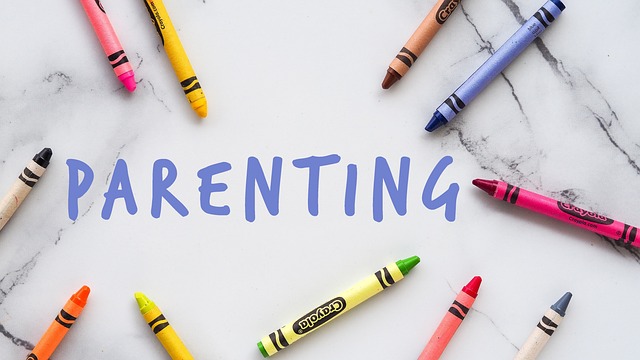Parental alienation can devastate families, but co-parenting lawyers and mediation offer crucial solutions. These professionals create tailored plans to protect children's well-being and foster healthy relationships between separated parents. Through expert guidance on custody, parenting time, and decision-making, they prevent alienation and promote shared custody arrangements that benefit both parents and the child, ensuring a stable and loving environment despite conflicts. Co-parenting mediation, facilitated by neutral third parties, provides a collaborative space for open dialogue and mutually beneficial agreements, reinforcing parental rights and the child's best interests.
Navigating the complexities of co-parenting after a separation or divorce can be challenging, especially when dealing with issues like parental alienation. This article provides essential insights and practical guidance for fostering healthy co-parenting relationships. We explore the impact of parental alienation on effective co-parenting plans and introduce key roles played by a co-parenting lawyer in mitigating these effects. Additionally, we delve into mediation as a powerful tool to resolve parenting time conflicts and support shared custody arrangements, empowering parents with valuable resources and parental guidance.
- Understanding Parental Alienation and Its Impact on Co-parenting
- The Role of a Co-parenting Lawyer in Creating Effective Plans
- Mediation as a Tool for Resolving Parenting Time Conflicts
- Supporting Shared Custody: Resources and Guidance for Parents
Understanding Parental Alienation and Its Impact on Co-parenting

Parental alienation is a complex and emotionally charged issue that can significantly impact co-parenting relationships. It occurs when one parent manipulates or influences a child to turn against the other parent, often leading to severe estrangement. This detrimental behavior can have profound consequences on the well-being of the child and hinder their ability to maintain a healthy relationship with both parents. In such situations, a co-parenting lawyer specializing in parental alienation can offer much-needed support. They assist in creating a robust co-parenting plan that aims to minimize the negative effects and foster a more positive environment for the child.
When parental rights and parenting time are at stake, co-parenting mediation becomes a valuable tool. A neutral third party, often a trained mediator, facilitates open communication between the parents. This process helps resolve conflicts related to shared custody, parenting time schedules, and decision-making responsibilities. By encouraging cooperation, mediation enables parents to establish a cooperative co-parenting relationship, ensuring their child’s best interests are at the heart of every agreement. With professional guidance from a co-parenting attorney or parental alienation lawyer, parents can navigate these challenges more effectively, ultimately benefiting both the parents and, most importantly, the child.
The Role of a Co-parenting Lawyer in Creating Effective Plans

When navigating complex family dynamics and parental separations, a co-parenting lawyer plays a pivotal role in crafting robust and effective co-parenting plans. These legal professionals are experts in guiding parents towards shared decision-making and resolving parenting conflicts amicably. By focusing on the best interests of the children, they facilitate a cooperative environment, which is essential to prevent parental alienation and ensure stable relationships with both parents.
A co-parenting lawyer assists in developing comprehensive plans that outline parenting time, custody arrangements, and communication strategies. They help negotiate and draft legal documents that respect and protect parental rights while fostering healthy shared custody. Through mediation and guided discussions, these attorneys enable parents to overcome challenges, resolve disagreements, and create a harmonious co-parenting experience for their children, thereby ensuring they receive consistent love, care, and support from both parents.
Mediation as a Tool for Resolving Parenting Time Conflicts

Mediation has emerged as a powerful tool in resolving conflicts related to parenting time and co-parenting plans. When parents find themselves at odds over crucial decisions regarding their children’s upbringing, a neutral third party, often referred to as a co-parenting mediator, can facilitate open communication and negotiate a mutually agreeable arrangement. This process is particularly beneficial for mitigating the potential harm of parental alienation, where one parent attempts to turn a child against the other.
A co-parenting lawyer or attorney specializing in family law can guide parents through mediation, ensuring their rights and interests are protected. By focusing on collaborative problem-solving, this approach encourages parents to prioritize their children’s best interests and work together effectively. The ultimate goal is to establish a robust co-parenting plan that facilitates shared custody and fosters a stable, loving environment for the child, even in the midst of parental conflicts.
Supporting Shared Custody: Resources and Guidance for Parents

Supporting Shared Custody: Resources and Guidance for Parents
In many cases, a cooperative and well-structured co-parenting plan is crucial to ensuring a child’s emotional well-being and stability following a divorce or separation. This involves both parents actively participating in decision-making and sharing responsibilities equally. A co-parenting lawyer can provide expert guidance on creating such plans, taking into account factors like parenting time, school districts, extracurricular activities, and medical decisions. The goal is to minimize disruption in a child’s life and foster a sense of security and continuity.
Co-parenting mediation offers another vital resource for parents navigating shared custody. Mediators provide a neutral space where conflicts can be resolved amicably, avoiding the adversarial nature of court proceedings. They help parents communicate more effectively, set clear expectations, and establish consistent routines for their children. By addressing parental rights and obligations openly and constructively, mediators support the development of a cooperative co-parenting relationship, ultimately reducing the risk of parental alienation and promoting the best interests of the child.
Navigating parental separation and ensuring a healthy co-parenting dynamic can be challenging, especially when dealing with issues like parental alienation. A co-parenting lawyer plays a vital role in creating tailored plans that respect parental rights while prioritizing the best interests of the child. By utilizing mediation as a tool, parents can effectively resolve parenting time conflicts, fostering a cooperative environment for shared custody. This comprehensive approach, supported by resources and guidance, empowers parents to make informed decisions, ultimately enhancing their ability to raise children together in a harmonious manner.
